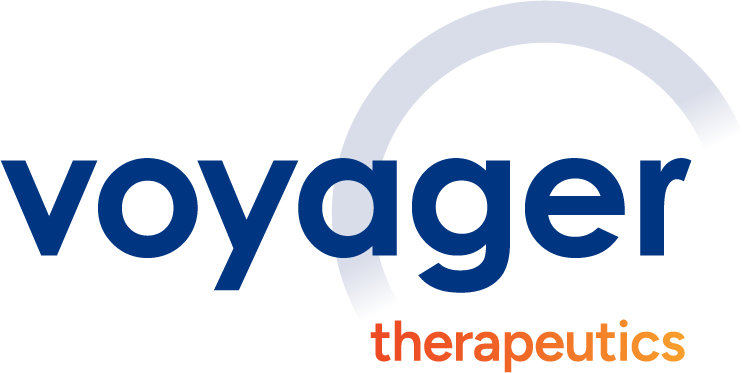Release Details
Voyager Therapeutics Receives FDA Clearance of IND Application for Gene Therapy Candidate VY-HTT01 for Treatment of Huntington’s Disease
One-Time Gene Therapy to be Evaluated in Patients with Early Huntington’s Disease
Initiation of VYTAL Phase 1/2 Clinical Trial at Multiple Sites Expected this Year
“The decision by the FDA regarding our IND application for VY-HTT01 for Huntington’s disease represents an important milestone for Voyager and is the result of years of commitment to developing an impactful new therapy to address this devastating disease,” said
Currently there are no disease-modifying therapies approved for the treatment of Huntington’s disease, a fatal, inherited neurodegenerative disease caused by toxic gain-of-function mutations in the huntingtin, or HTT, gene. HD affects over 30,000 people in the
VY-HTT01 is a gene therapy designed to reduce the expression of huntingtin, thereby altering disease progression. VY-HTT01 is comprised of an adeno-associated virus capsid (AAV1) and a proprietary transgene that harnesses the canonical RNA interference pathway to selectively knock down levels of HTT mRNA. Preclinical data in non-human primates demonstrated robust and durable reduction of HTT mRNA and protein and widespread distribution of VY-HTT01 across the striatum and cortex, which are core areas of disease pathology.
“Our investigational gene therapy has been designed to achieve broad knockdown of HTT mRNA throughout the brain via a one-time MRI-guided neurosurgical delivery,” said
Voyager’s VYTAL Phase 1/2 clinical trial is a dose escalation study to evaluate the safety and tolerability of VY-HTT01 in patients with early manifest Huntington’s disease. Secondary endpoints include disease biomarkers and clinical outcome measures.
About
Forward-Looking Statements
This press release contains forward-looking statements for the purposes of the safe harbor provisions under The Private Securities Litigation Reform Act of 1995 and other federal securities laws. The use of words such as “may,” “might,” “will,” “would,” “should,” “expect,” “plan,” “anticipate,” “believe,” “estimate,” “undoubtedly,” “project,” “intend,” “future,” “potential,” or “continue,” and other similar expressions are intended to identify forward-looking statements. For example, all statements Voyager makes regarding the initiation, timing, progress, activities and goals of the VYTAL clinical trial of VY-HTT01, the ability of VY-HTT01 to achieve broad knock down of HTT mRNA throughout the brain, the collaboration by Voyager with leading Huntington’s disease and neurosurgical experts, and Voyager’s intentions and programs for the development of a gene therapy for Huntington’s disease are forward looking statements.
All forward-looking statements are based on estimates and assumptions by Voyager’s management that, although Voyager believes such forward-looking statements to be reasonable, are inherently uncertain. All forward-looking statements are subject to risks and uncertainties that may cause actual results to differ materially from those that Voyager expected. Such risks and uncertainties include, among others, the ability to arrange for the initiation of the VYTAL clinical trial at clinical sites, including the ability to receive the review by and approval of Institutional Review Boards and other necessary institutional approvals at proposed clinical sites, the ability to recruit and engage researchers, physicians and patients to participate in the VYTAL clinical trial, the ability to agree to terms, and to sign and implement clinical trial agreements and associated agreements with VYTAL clinical trial collaborators, the ability to identify
Investors:
Investors@voyagertherapeutics.com
Media:
W2Opure
949-903-4750
sseapy@purecommunications.com
Source: Voyager Therapeutics, Inc.


